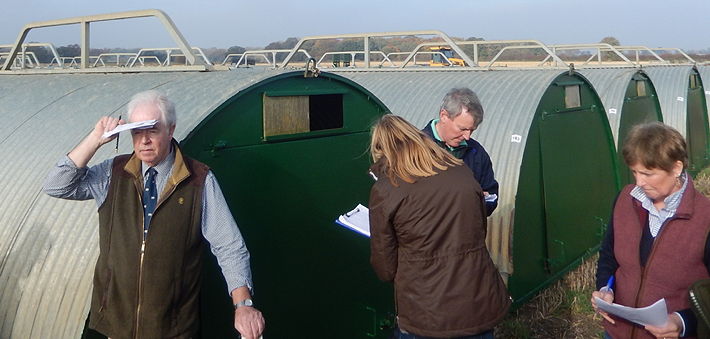With the Easter holiday approaching, pig meat prices on both sides of the Channel seem to have paused for breath after recent increases which have seen German pig prices move up from 1.20 EUR at the start of the year to 1.95 EUR today.
However, the improvement in the SPP over the same period has only so far resulted in an overall price increase of around 8p/kg, despite the latest SPP going up by 3.56p to stand at 150.55p.
Trade sources are indicating that it is not so much a case of too many pigs but poor demand with retail consumers becoming very price conscious due to the soaring cost of living across the board and as a result demand for baked beans is outstripping pork by a country mile.
UK weekly contribution prices announced today have all remained at last week’s levels between 168p at the bottom and 190p at the top, but spot buyers are reporting very poor demand from fresh meat outlets and regular spot bacon sellers have found it difficult to get much more than 130p/kg except for lighter weights.
According to producer, there are still far too many heavy pigs in the system and average weights are on the high side averaging 93.75kg in this week’s SPP sample
A reduction in the value of the Euro from 84.14p a week ago to 83.33p today has done nothing to help the sow trade where prices could be described as a reluctant stand on with most between 74p – 78p/kg.
The latest AHDB 7kg ex farm weaner average of £34.07/head underlines the significant loss breeding producers are continuing to suffer with production costs in the £40/head region. Feed prices also continue to be highly volatile with fighting continuing in Ukraine but still no progress in peace talks.
A combination of fertiliser shortages and the ongoing warfare is causing more damage to ports and export links and some reports are indicating that the current Ukraine grain harvest could be over 20% down over the past 12 months.
In the light of the Ukrainian nightmare, UK feed wheat futures prices remain completely unviable for pig farmers with feed wheat traded for May at £309/t and for September at £270/t.
Spot feed wheat traded in the UK on an ex farm basis has averaged £299.50/t and barley values are now heading for a photo finish with wheat with forward feed barley deals being agreed in the £310/t region for May and £258/t for September.
Protein values are also still at unsustainable levels with May Hipro soya at £486/t and November – April 2023 at £481/t. Rapemeal trades have however shown a slight decrease with May – July at £404/t compared with £430/t a month ago.
And finally, industry sources are suggesting that unless a new type of pig contract can be introduced which includes a significant COP element it is difficult to see how many units will be able to continue to fund the supply chain at their expense.
Red Tractor production costs are estimated to be close to 200p/kg and the higher costs attached to RSPCA assured pig production are close to 230p/kg.
Unfortunately, the recovery in the SPP may well be a case of too little too late for many producers leading to further reductions in the size of the UK herd and a continuing increase in the flow of imports heading this way produced to lower welfare standards than our own.
The UK pig industry has a mountain to climb to get back on track.




